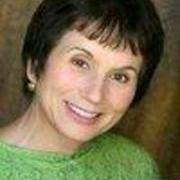Hundreds of people have asked me why someone develops an eating disorder. Of course many issues are involved, but from my exploration of this field over the years, I have concluded that there is one outstanding theme that runs through every person with an eating disorder whom I have encountered.
Early in their lives, people with eating disorders have experienced, on a sustained basis, relentless boundary invasion on every level.
When their physical, emotional, psychological, intellectual, sexual, and creative boundaries are consistently ignored and penetrated, people experience total boundary invasion. With no control and no way to end, protest, or, often, even acknowledge such invasions, these persons feel helplessness, despair, and a certainty that they are worthless to themselves or anyone else.
The consequences of such total invasion are vast. One consequence is an eating disorder. Having had so many boundaries disregarded, a person has no knowledge or skills in recognizing or honoring boundaries herself. She will eat or starve for emotional relief.
She may eat vast amounts of food for comfort value alone. She may deprive herself of food until her life is in danger. She has no internal regulator that tells her when she has reached her limit and experienced enough. Being oblivious to any boundaries means being oblivious to limits of any kind.
The compulsive overeater eats whenever and whatever she likes. She bases her choices on self-medication issues, not feelings of physical hunger.
The anorexic will not eat. There is no limit to her not eating. She will starve herself to death in search of relief from her emotional pain. She knows nothing of the experience of having enough. She couldn't say, "Enough," to an invader of her boundaries, and she can't say it to herself. The concept of enough has no meaning to her. She often feels that if she "disappeared," she might find some permanent relief.
I have heard countless anorexic young women talk ethereally, with a lost-in-a-beautiful-world-of-angels smile, of how wonderful it would be to become a vapor or a light dancing spirit in the clouds. Ah, such spiritual bliss, they imagine. In reality, it's the final self-protective act, to destroy their bodies and their lives completely. Then they can truly escape the complexities of being alive.
The bulimic will binge grotesque amounts of food. She will assault herself with more food than her body can tolerate.
The compulsive overeater will, at last, have to stop eating if only because of the pain in her distended stomach. Her body sets a final limit. The bulimic has no such limit. She experiences (in her mind) no consequences of the food assault on her body. When her body cannot bear more, she will vomit it all out. Then she will resume her binge. She may reach her body's limits many times. Each time she does, she can throw up again and continue.
Eventually she stops, because she is completely exhausted, or she is in danger of being discovered. "Enough" has no meaning to her. There are no limits and no consequences for her disregard of her boundaries.
Realistically, of course, there are plenty of consequences. Her behavior inflicts serious damage to her body. And each time she attacks herself with a binge-and-purge episode, she destroys more of her spirit, soul, self-esteem, sanity, health, and value to herself and others.
Each violation deepens her ritualistic behavior, and she becomes more entrenched in her disorder. The consequence is increasing anguish and despair. Yet the eating disorder is not the cause of that anguish and despair. The eating disorder exists to numb her from her already existing psychological agonies.
For a while, maybe a few years, the eating disorder successfully blocks her awareness of pain too difficult to bear. But eventually the protective device of the eating disorder becomes just another boundary invader, this time self-induced, that weakens and damages her even more.
What do I mean by a history of boundary violations? Blatant and extreme boundary violations involve sexual molestation, sexual abuse, and physical abuse. Much has been written about these areas now, especially in material exploring Post Traumatic Stress Disorder (PTSD) and Dissociative Identity Disorder (DID). Use your search engines to find some quality information posted on the Internet in these subject areas.
However, there are other kinds of boundary violations, and these are less dramatic, less discussed, more prevalent, and just as devastating to a persons psyche. When, in the name of caretaking, people in authority take over a young person's life, it constitutes boundary invasion.
When others deny her privacy, read her diary, borrow or take her things without permission, or use their ideas or goals or personalities to overwhelm her efforts in school or sports, that is a violation of her boundaries.
When others disregard or disdain her choices or deny her any control over her personal life, clothes, food, friends, and activities, they are invading her boundaries.
An invasion of boundaries also takes place when, in the name of caretaking, people give her no responsibilities of her own and attach no consequences to her actions. When the child or adolescent can have all the things she asks for without putting forth effort to earn such gifts, she learns nothing about personal effort, limits, consequences, or the meaning of enough. If she wants something, she gets it. That's all. If someone picks up her clothes, does her laundry, fixes her car, pays her bills, lends her money or things without expecting them returned, she experiences no boundaries and no limits.
If she doesn't have to keep her promises, if she doesn't reciprocate with caring actions for people who care for her, she learns nothing useful about herself in relationship to other people. The only thing she learns with certainty is that there are no limits to her behaviors or desires.
These boundary invasions are not loving acts, nor are they "spoiling" a child through overindulgence. Quite the contrary, they are acts of neglect. The child's taste, mind, capacity to learn, and ability to grow and function as an independent agent in the world remain unacknowledged.
When others, even well-meaning others, ignore her identity as a unique, developing, and competent individual and flood her with their personal agendas, she feels as if a steamroller had flattened out her psyche. She may learn to please, to manipulate, to compete, or to control, but she is unable to learn to be fully present in the world as her genuine self.
She doesn't learn that she has meaning and value. She doesn't learn that she can put that meaning and value within her to work to accomplish goals.
For example, if she breaks something, whether it is a lamp, a car, her word, or someone's heart, it is possible and healthier to give her the responsibility for making necessary repairs using her own resources and her own creativity. In such a process, she learns what effort means. She learns what responsibility and consequences for actions mean. She learns reasonable limits and reasonable expectations. She develops resources to make healthy and caring decisions in the future.
Without such lessons, she learns are the tricks involved in adapting quickly to the expectations of others or being manipulative to get what she wants. These are poor and insubstantial tools to rely on when building an adult life.
Somewhere inside, over time, she may gradually realize this. But without a sense of boundaries, she will only become bewildered and anxious. She will accelerate her practice of using her eating disorder as a way to numb her feelings of anxiety. She will use her manipulating skills to get what she wants from whomever she can exploit.
As time passes, fewer people in her life will allow themselves to be manipulated. The quality of her circle of associates will decline as she seeks people she can control with her inadequate methods of functioning in the world. She will find herself in bad company.
This becomes all the more reason to rely on eating disorder behaviors for comfort. The people around her are less reliable all the time. And finally, they tolerate her presence only because they can manipulate her.
She arrives at the total-victim position. Her manipulative skills backfire. People exist in this world who are better at manipulating and using than she. She has found them. She becomes their target and then their prey. Her dependence upon her eating disorder becomes her most valuable and trustworthy relationship.
Early in her development, she learned through massive boundary invasions (which perhaps seemed ordinary and unimportant at the time) that she was helpless to assert herself. She learned that she had no private or sacred space to cherish and respect. She could not acknowledge, even to herself, that she was being thwarted, invaded, controlled, manipulated, and forced to deny large aspects of her natural self. She had no recourse except to comply.
To succeed at being unaware of her natural tastes, curiosities, and inclinations and her pain in restraining her natural tendencies, she developed an eating disorder. Now that she's older and her manipulation skills are failing her, she only has her eating disorder to rely on. This may be the most crucial time in this person's life.
If her pain and despair are terrible enough and she is certain she cannot bear this way of living anymore, she still has choices. She can continue to rely on the eating disorder and by so doing take the path to self-destruction. Or she can reach out and get help.
This is a tough position for her. She's never known what enough was. Yet to choose to get help, she has to recognize that she has had enough pain. She's never known what a limit is. Yet she has to recognize that she has reached her limit and must choose between death and life. She has only known about pretense and manipulation. Yet she has to be honest to reach out for genuine help.
She feels massive anguish and pain before she stretches beyond her life pattern into what might bring her healing and recovery. She's reaching for something she can't imagine. It's difficult for a person with an eating disorder to decide to get help. She would have to allow herself to trust someone with knowledge of her real personhood.
She doesn't yet know that people who do respect and honor boundaries actually exist in this world. She doesn't yet know that there are people who can and will honor and cherish her most private and sacred inner spaces. She doesn't yet know that someday the trustworthy, respectful, steadfast, and competent caretaker she needs so badly can be herself.
Her first move toward recovery requires all the courage she can muster. Her recovery begins when with fear or rage, she rallies her courage to reach out for help.
Difficult, yes. But what she doesn't know yet is that she has been courageous all her life. She makes a grand discovery when she learns that she can apply her strength and courage to her own health. She can use her gifts to, at long last, be free of her eating disorder, be her genuine self in the world.
Professional Resources for Finding Help
Academy for Eating Disorders (AED)
American Anorexia and Bulimia Association (AABA)
Anorexia Nervosa and Related Disorders (ANRED)
Edreferral.com
International Association of Eating Disorders Professionals (IAEDP)
Joanna Poppink's Eating Disorders Resource List In-Patient Treatment Programs
National Eating Disorders Association (NEDA)
Joanna Poppink, Los Angeles psychotherapist, licensed since 1980 (MFT #15563), is deeply committed to bringing recovery to people suffering from eating disorders.
Her specialized psychotherapy practice is designed to allow clients to progress through anxiety situations to ongoing recovery from bulimia, compulsive eating, anorexia and binge eating. Her primary goal is to provide people with a way to achieve thorough and long lasting healing.
Eating Disorder Recovery book in progress through Conari Press
10573 West Pico Blvd. #20
Los Angeles, CA 90064
http://www.eatingdisorderrecovery.com
[email protected]





Add a Comment206 Comments
Dear Anne,
I am so, so, so very sorry for the experience your daughter (and the rest of her family went through)!!!! As a mother, I cannot imagine how you felt. I probably would have wanted to react like you wanted to, and immediately remove my daughter from that situation!!!
While this is not exactly the same thing, I went through a lot with my oldest son, Johnny. He was diagnosed as "speech and language delayed" at age 18 months and went to a special education public school when we were living on Long Island, NY. At the time, I honestly could not see (or accept) that my son was not perfect. I was a new, young and inexperienced mother. My then father-in-law (who was an educator, and was then a school superintendent) told me that I had to listen to the experts, and do what they said regarding Johnny. He kept telling me that "something is just not right" with him. So I stepped out on faith and did. Turns out, after many years of never giving up, that my son had a very difficult form of ADD to diagnose (which was finally diagnosed when he was 8 years old). His school tested him for special education (at my request) and he qualified, based on their formula. Because he tested with a 125 IQ, as his mother I did not feel he would be with his peers if I allowed him to be put in the school's special education program. So, I chose not to put him in it, and instead I hired a special education teacher from another school in our town to tutor him once a week for 2 years. That turned out to be the best thing for my son - not what the "experts" recommended. We, as parents, so often know in our hearts what is best for our children. Thank God, I made the right decision for Johnny. He is now getting ready to enter his sophmore year at a major university (4 hours from home) and is doing AWESOME!!! It's been a long road with my son, but he is so wonderful and will be successful in anything he chooses to do with his life. He is a wonderful young man! I never expected anything from my two boys - other than they always do their best, whatever that "best" may be. When Johnny was struggling in those early years, and bringing home bad grades, I always took them out to a celebration dinner - to celebrate report cards - because I knew he'd done his best!!! :)
I cannot imagine having a child with a life-threatening illness. I greatly sympathize with you!!! I believe when our children go through a life-altering illness or condition, it must be the entire family who stands next to them to help guide them through it!!
Please do not view my post as sad, angry, and full of resentment. Joanna Poppink has helped me and many, many others tremendously. I guess I just feel very protective of her because I've been the recipient of so much of her genuinely caring help and assistance. She has made a tremendous, positve difference in my life and many others, too.
Shelley
June 8, 2009 - 5:15pmThis Comment
This note is in response to Shelley's question asking whether I am an expert on eating disorders and the statement I made regarding boundaries. My only expertise in this area is two seriously ill family members, now recovered, work on a mental health unit and an undergraduate degree in social work, master's degree in pediatric occupational therapy. As far as I am aware, there is no specialty degree in eating disorders itself. If there is, I'd be very interested to know that. Joanna, maybe you can answer that?
If you go back again and reread what I said about boundaries, you will see that I never claimed boundaries don't get crossed in my (or any) family. What I said was,
"...Real love is seeing and knowing the boundaries and WHEN to step over them. Because, with eating disorders you MUST step over them, even when it feels uncomfortable and abnormal to do so, even when others are telling you not to--in order to save a life. Its often the only way to pull an ill loved one back from the edge."
When my daughter first became ill, I (like most parents) went straight to the experts. I had total trust. However, I soon realized a number of things. First, I had a difficult time even finding referrals to experts (and I live in a medically reknown city). I did almost all of the work myself, putting together my daughter's team. I also had to dig hard for evidenced-based 'best' practices. I was stunned (that's rather putting it mildly) to be ushered out of most of her doctors/nutritionist/counseling sessions. I felt fairly left in the dark. We are talking about a very ill 14 year old here, not an adult. Gradually, over time--through experience and much reading, I began to realize there were very divergent views on how to treat this illness. How one treated it depended on how one viewed it's basic cause. None of this was stated up front. For so many illnesses, you might be given recommendations and choices (e.g. mastectomy vs. radiation/chemo, etc). But not here. It felt pretty mysterious. And, I felt pretty left out. I couldn't quite imagine this happening had my daughter been stricken with cancer or some other serious illness.
As for genetics, yes this is a moderately heritable illness based on Swedish twin studies. If you've a family history of anorexia, you are 12x more likely to get it than the average joe (or jessica) on the street.
And, I'm well aware I can't be with my daughter every second of her life. No one could. But, in all the years of treatment she has had, she's always vehemently denied any sort of abuse. At some point, I've got to believe that. And, I started believing it long ago.
I totally admit to a mix of feelings when I read a post such as this--upset, anger, sadness, despair. For me, the saddest part was that my daughter started to believe that we, her family, were overprotective, over-involved, over-everything. That we didn't listen to her. That we violated her boundaries. When she was at her most ill, she was told that staff would help her discover why she chosen to stop eating. She was told, "It's your Dad" at one point. Then, "your mom doesn't listen to you".
I was in shock and angry that this would be 'fed' to an ill young person. The very people who had insisted she get help, had trusted the experts, had slepted on her floor for many a long night to keep her safe, had held her through rages, were suddenly now the #1 suspects.
This is not healthy for anyone. Parents need to know there are treatment choices--options--out there. Parents needs to be aware that views can differ greatly. Parents need to think about, interview therapists and sort out for themselves which treatment philosophy best fits their family. To me, the choice is crystal clear as I'm still struggling with the fall out from 'traditional' therapy vs. the newer, family-centered Maudsley approach.
I would hope this thread might give everyone something to think about--the effects of therapists' assumptions ahead of time about families/parents; the widely varying approaches out there today in the treatment of ED's which are confusing for families; the feeling by many (still) that this illness is not about food, but about emotions and that it is emotional work that must be done. I do agree that, in the case of my daughter, she is very socially anxious. Is this a) my fault? b) My husband's? c) Her's? d) None of the above. E) All of the above via genetics? Fault is maybe a bad choice of words. But, I do believe that genetics played a significant role. Children come differently from Day 1. Any parent can, and will, tell you that.
I might end by adding that Maudsley is currently accepted 'best practice' for adolescents with anorexia. It is also being pioneered with bulimia and with young adult anorexics. I am very hopeful for it's success.
anne
June 8, 2009 - 2:27pmThis Comment
Hi,
I've been researching how children with eating disordered mothers are impacted. Unfortunately, there is very little research out there, but I did find Dr. Allen Stein at Oxford University who studies how a parent's psychopathology (including bulimia) can negatively impact a child's development. His studies are very compelling, and, he has completed a study testing out an intervention with mothers with EDs who have young children. With success.
My focus is narrow because this is my experience, having been the daughter of a bulimic mother (my sister and I developed eating disorders despite our differing personalities and different biological fathers) but I hope someone can get something out of this.
In my dream world, I would like to see treatment professionals take this into account when assessing EDs. Eating disorders are very complicated and multi-faceted, but I think it's important to look at the whole family, not just the individual.
http://www.neuroscience.ox.ac.uk/pubs/psychiatry-publications/SteinEtAl2006
http://www.neuroscience.ox.ac.uk/pubs/psychiatry-publications/SteinEtAl2006a
Maybe someone out there can answer this question - when a parent seeks treatment for an ED, do the treatment professionals assess the impact of the the parent's ED on the children in the home?
Thanks,
June 8, 2009 - 12:58pmCarol
This Comment
Dear Carol,
I cannot give you a "professional" answer, but I can tell you that my mother was always obsessed with her weight. My entire life, there was always a small piece of paper on the kitchen counter with the calories written down on it that she'd consumed that day. Usually it was 400 or 600 calories per day.
When I began to overeat (compulsive eating) as an adolescent, and I started gaining weight, my parents tried everything they could think of to help me to lose weight. They offered to give me $1 for ever pound I lost. They offered to "buy me a new stereo" if I lost weight. Keep in mind that this was in the mid-70's. Not much was known about eating disorders back then. They were only doing what they thought was best for me, but they were actually causing more harm to me and driving me into full-blown eating disorders. They didn't know any better at the time.
My mother was always around 128 pounds, and she was 5'3" tall. That is "normal!" But she always "felt fat", like she should be "skinny" (I hate that word - skinny). When she looks back at pictures of herself today, during that time, she talks about how "normal" she looked! She says, "I wasn't fat!!!"
Shelley
June 8, 2009 - 4:49pmThis Comment
Hi Carol,
June 8, 2009 - 4:00pmI don't know the answer to your question, but UNC-Chapel Hill has some interesting research going on. The Nurture program is designed to help mothers with histories of eating disorders with their parenting.
http://www.psychiatry.unc.edu/eatingdisorders/research%20eating%20disorders/nurture/what-is-nurture
Jane Cawley
This Comment
Shelley,
I am sorry that you have been battling ED for all these years.
What saddens me more is that you don't believe that you can ever completely recover.
Hopefully, you will completely recovery and along with that full recovery, as so many others have done, let go of the anger and resentment you have toward your parents.
God Bless!
June 8, 2009 - 12:38pmThis Comment
I do not have any anger or resentment towards my parents (who are still married, by the way)!!!!! I am blessed enough to be in the minority of adults who are survivors of incest (and "survivor" I am, no longer a "victim!) - and my relationship with my father has been healed, with lots and lots of work on both sides, over the past 14 years! My sexual abuse is no longer a secret in my family. Everyone knows and it's discussed; it's out in the open and talked about. Thank God there are no more secrets in my family.
Because of the hard work we've done as a family, I now have the father I always deserved. My dad has done everything he can possibly think of to "make up" for what he did to me as a child. Of course, he can never un-do what he did, but he loves me greatly (as I do him), and there is nothing he would not do for me - he would give his life for me in a second, without a single thought! Just like a father who loves his daughter should.
My family was only able to get to this point through tremendous forgiveness on my part (and the rest of my family), and "communication!" I believe that is a big key: Communication, lots and lots of open, non-judgmental communication.
My father happens to be an alcoholic, and the day my mother confronted him about molesting me as a child (22 years later), he stopped drinking and has never drank any alcohol since that day.
I have been in counseling/therapy for most of the past 17 years. I've had many counselors who also suffered with eating disorders. It is like an addiction for me. It is something that I know without a doubt that I will always have to keep in check. Maybe it's because, for me, it started at age 12 and still occasionally rears it's ugly head at age 46? That's a very long time...
It does not matter why it will always be something that I will need to be aware of and keep in check. I have many other emotional and psychological issues in addition to the bulimia (I'm also a recovering alcoholic). For me, it's another "addiction." I'm heavily involved in recovery work with my AA group and I spend a lot of time helping others in their recovery.
If I came across to anyone as having "anger and resentment" I was completely misunderstood. Unfortunately, it's sometimes difficult to write out words to be taken in the way we mean for them to be taken.
God Bless all of You!!! :)
June 8, 2009 - 4:42pmShelley
This Comment
Kristine,
Right on!
June 8, 2009 - 12:25pmThis Comment
Shelley,
Yes, the title is "The Number One Reason . . .", which doesn't necessarily mean she believes it is the only reason. But then Joanna says "I have concluded that there is one outstanding theme that runs through EVERY PERSON with an eating disorder whom I have encountered. Early in their lives, people with eating disorders have experienced, on a sustained basis, relentless boundary invasion on EVERY level."
It doesn't get much clearer than that. EVERY PERSON with an ED that she has encountered has reported this total invasion or neglect. If she doesn't mean that it is the only reason for manifesting ED, then she should say so, otherwise how are we to understand her position? It would appear that she thinks it so for at least the vast majority of cases. If anyone knows of any well-researched studies indicating that total boundary invasion or neglect are involved in a major way in the etiology of EDs, I'd love to hear about them. Ideally, the invasions/neglect would involve as much outside verification as possible, since ED sufferers have such disordered perceptions, especially involving those who are trying to help them.
There are plenty of people well along in their recoveries from EDs, or who are recovered, who will report that they had very normal childhoods, without total invasion or neglect.
Kristine
June 8, 2009 - 11:53amThis Comment
I was referring to the first responder to Joanna's blog, the initial ranting post.
Joanna is not saying that "all" parents caused their children's EDs by crossing boundaries, neglect, etc. The title of this blog is "The Number One Reason for Developing Eating Disorders." It's not the "only" reason. There are many different reasons.
Lots of parents think they have a wonderful home for the children to be raised. My mother genuinely thought so, too. However, she did not know that my father molested me at age 11 - I kept it completely hidden, "a secret" from her (I told her when I was grown). That was a serious boundary that was crossed - and my mother did not know! She was an excellent mother!
And like I said before, we never know what happens to our kids when they are not with us. Anything can happen to anyone, at anytime.
I'm so glad your daughter was able to get well! In all my years of studying, exploring and reading about the causes and treatments of eating disorders, I have not read about a reason for an eating disorder to be a "brain disorder." Your daughter having a brain disorder would definitely not fall under the heading of Joanna's blog "The Number One Reason for Developing an Eating Disorder." Actually, when I think about it, eating disorders "are" brain disorders in themselves (they are psychological disorders).
Shelley
p.s. If anyone doesn't want to appear "anonymous" all you have to do is register on this site. Just takes a minute.
June 8, 2009 - 9:59amThis Comment